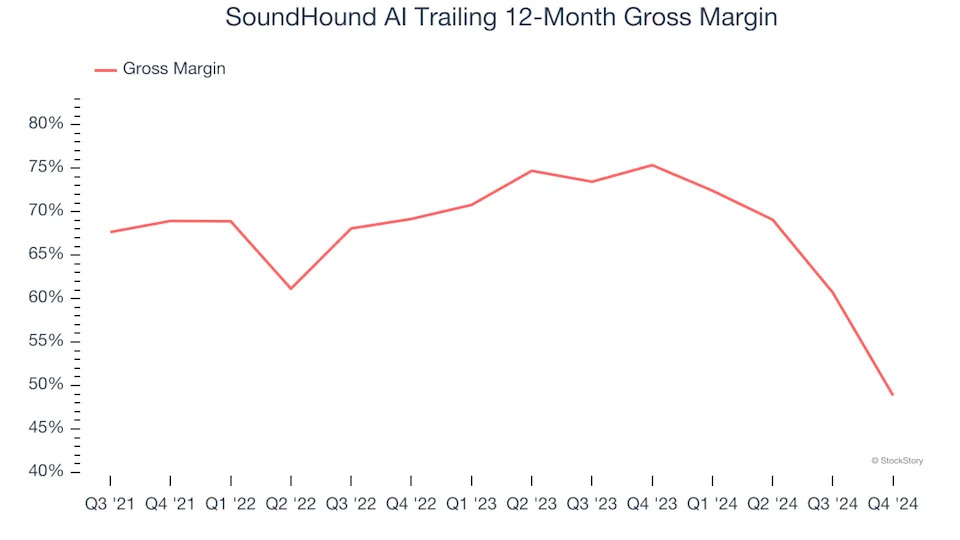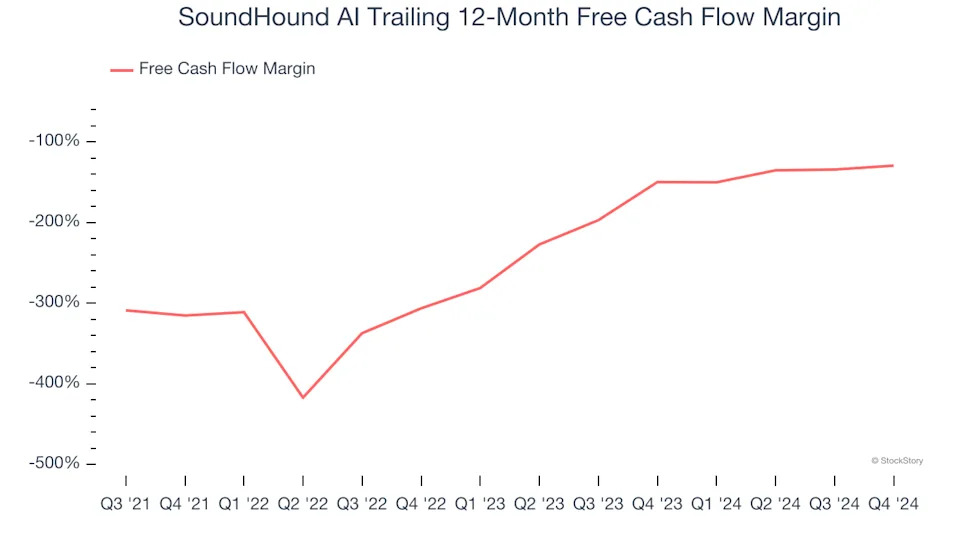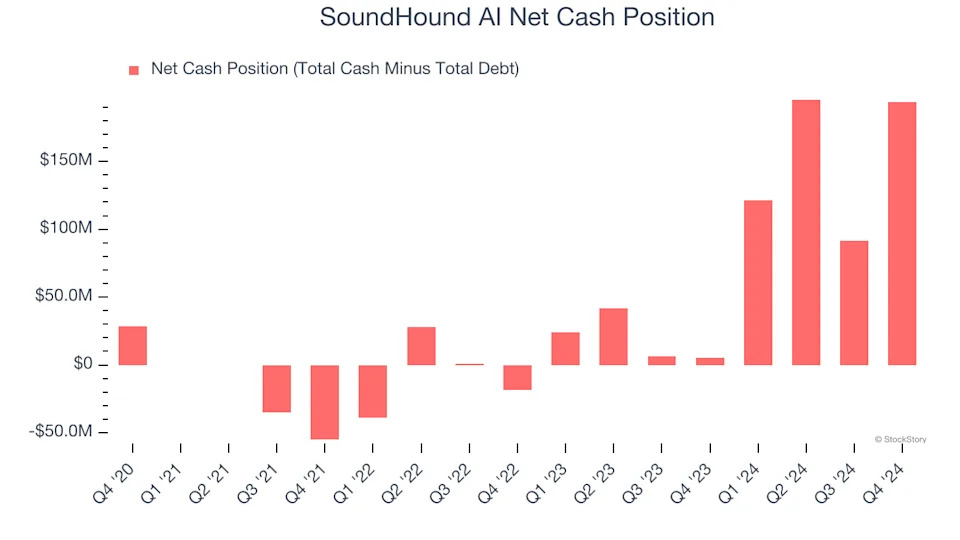
3 Reasons to Avoid SOUN and 1 Stock to Buy Instead

SoundHound AI has been on fire lately. In the past six months alone, the company’s stock price has rocketed 54.8%, reaching $8.22 per share. This was partly due to its solid quarterly results, and the run-up might have investors contemplating their next move.
Is now the time to buy SoundHound AI, or should you be careful about including it in your portfolio? Get the full breakdown from our expert analysts, it’s free .
Despite the momentum, we're cautious about SoundHound AI. Here are three reasons why we avoid SOUN and a stock we'd rather own.
Why Is SoundHound AI Not Exciting?
Founded in 2005, SoundHound AI (NASDAQ:SOUN) develops independent voice artificial intelligence solutions that enable businesses across various industries to offer customized conversational experiences to consumers.
1. Low Gross Margin Reveals Weak Structural Profitability
For software companies like SoundHound AI, gross profit tells us how much money remains after paying for the base cost of products and services (typically servers, licenses, and certain personnel). These costs are usually low as a percentage of revenue, explaining why software is more lucrative than other sectors.
SoundHound AI’s gross margin is substantially worse than most software businesses, signaling it has relatively high infrastructure costs compared to asset-lite businesses like ServiceNow. As you can see below, it averaged a 48.9% gross margin over the last year. That means SoundHound AI paid its providers a lot of money ($51.14 for every $100 in revenue) to run its business.

2. Cash Burn Ignites Concerns
If you’ve followed StockStory for a while, you know we emphasize free cash flow. Why, you ask? We believe that in the end, cash is king, and you can’t use accounting profits to pay the bills.
SoundHound AI’s demanding reinvestments have drained its resources over the last year, putting it in a pinch and limiting its ability to return capital to investors. Its free cash flow margin averaged negative 129%, meaning it lit $129.31 of cash on fire for every $100 in revenue.

3. Short Cash Runway Exposes Shareholders to Potential Dilution
As long-term investors, the risk we care about most is the permanent loss of capital, which can happen when a company goes bankrupt or raises money from a disadvantaged position. This is separate from short-term stock price volatility, something we are much less bothered by.
SoundHound AI burned through $109.5 million of cash over the last year. With $198.2 million of cash on its balance sheet, the company has around 22 months of runway left (assuming its $4.35 million of debt isn’t due right away).
